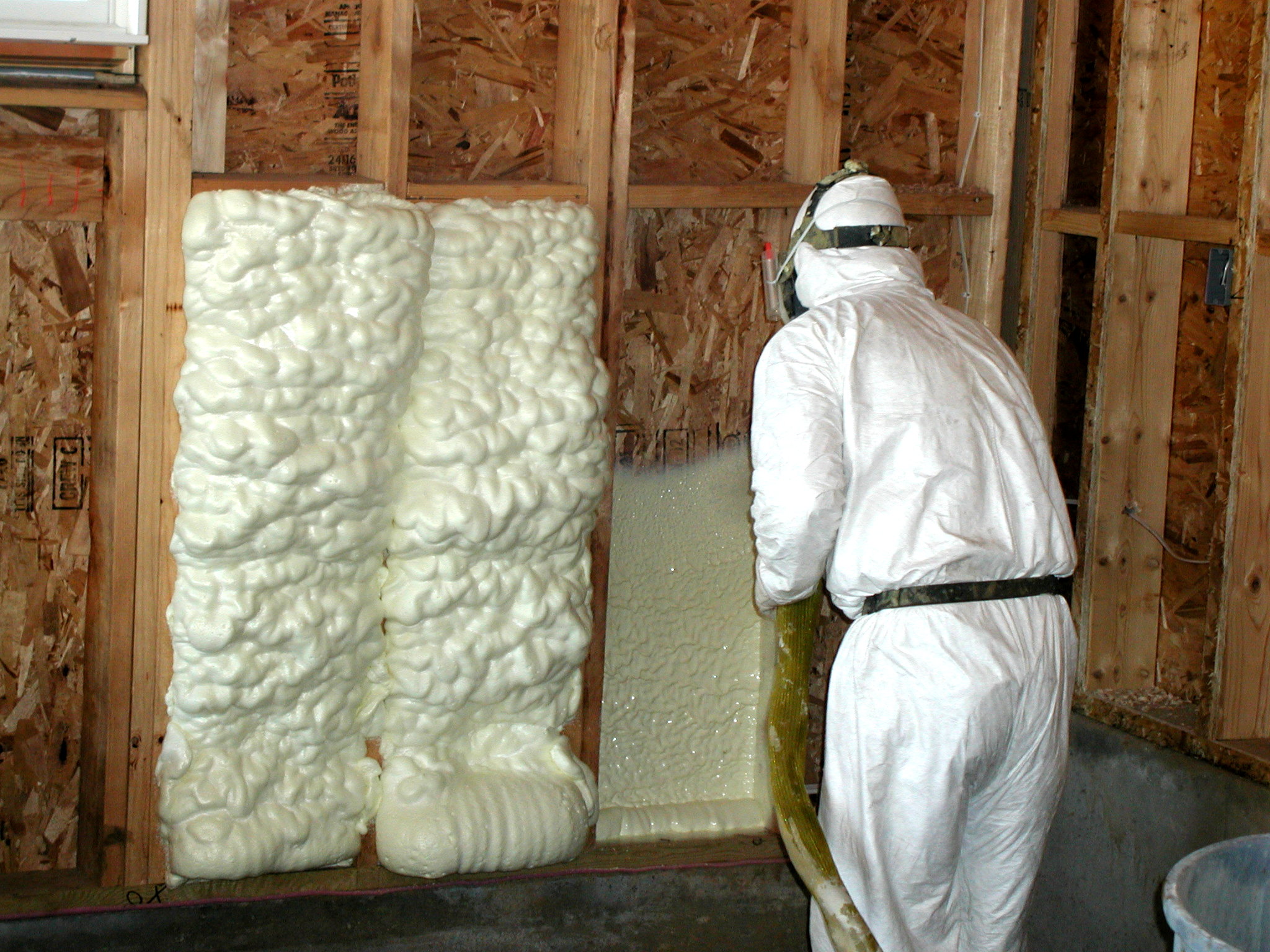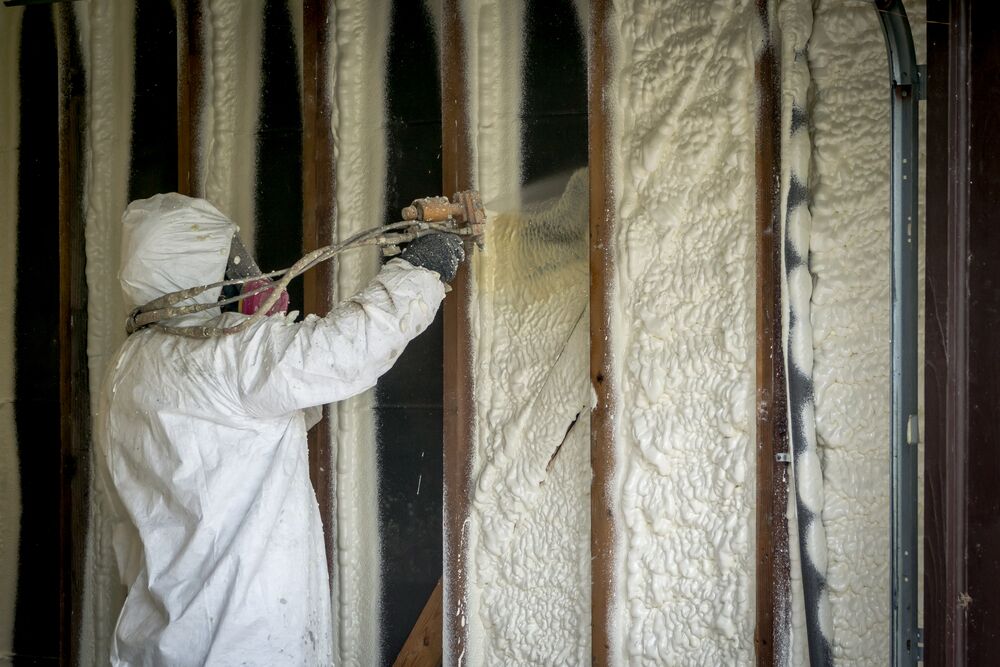How Spray Foam Can Boost Power Performance in Your Home
How Spray Foam Can Boost Power Performance in Your Home
Blog Article
Spray Foam: The Ultimate Service for Air Sealing and Insulation
Spray foam insulation has arised as a leading solution for efficient air securing and thermal insulation, providing a special combination of residential or commercial properties that set it apart from conventional methods. Comprehending the full extent of its benefits, installment processes, and comparisons with other insulation types is essential for making notified choices.
What Is Spray Foam?
Spray foam is a versatile insulation material that incorporates the principles of air securing and thermal resistance to boost power effectiveness in buildings. Made up primarily of polyurethane or various other comparable substances, spray foam is applied as a liquid that increases upon call with surface areas, producing a strong, constant layer of insulation. This unique building allows it to load gaps, fractures, and spaces that traditional insulation products may neglect, giving a superior air seal.
There are two major sorts of spray foam: open-cell and closed-cell. Open-cell spray foam is lighter and extra versatile, providing excellent sound absorption and a lower R-value per inch - Spray Foam. On the other hand, closed-cell spray foam is denser, offering a greater R-value, dampness resistance, and included structural honesty to building elements
The application procedure normally involves customized devices, guaranteeing a seamless application that sticks to different substratums, consisting of steel, concrete, and timber. This adaptability makes spray foam suitable for both new constructions and retrofitting existing frameworks. Its capacity to produce an airtight barrier considerably adds to reducing power intake and improving interior air top quality, therefore making it a preferred option amongst contractors and house owners alike.
Benefits of Spray Foam Insulation
One of one of the most substantial advantages of spray foam insulation is its extraordinary capacity to produce a continual air barrier, which successfully minimizes energy loss. Unlike traditional insulation products, spray foam expands to fill up cracks and gaps, guaranteeing that air leak is considerably minimized. This characteristic not only enhances energy effectiveness yet also brings about lower utility expenses gradually.
In addition, spray foam insulation offers superior thermal resistance, adding to a more stable indoor setting. Its high R-value per inch enables reliable insulation in confined rooms, making it ideal for attics, wall surfaces, and crawl spaces. In addition, the moisture-resistant properties of spray foam assistance protect against mold and mildew and mildew development, advertising much healthier living problems.
An additional important advantage of spray foam insulation is its sound-dampening top qualities (Spray Foam). It successfully minimizes noise transmission in between spaces, creating a quieter and a lot more comfy home atmosphere. The durability of spray foam additionally attracts attention, as it does not sag or work out over time, preserving its performance throughout its life expectancy
How Spray Foam Works
Understanding just how spray foam insulation functions is essential for valuing its effectiveness in air securing and thermal resistance. Spray foam insulation contains two primary parts: isocyanate and polyol material. When these elements are blended, they go through a chemical response that triggers the product to increase swiftly, producing a thick foam that loads splits, dental caries, and gaps.
As the foam expands, it sticks to surface areas, developing an airtight seal that considerably minimizes air seepage. This particular makes spray foam insulation very effective at protecting against drafts and dampness penetration, which can lead to power loss and damage with time. In addition, the closed-cell version of spray foam supplies exceptional thermal resistance because of its stiff structure, properly minimizing heat transfer.
The unique residential or commercial properties of spray foam allow it to adjust to uneven surfaces, making sure detailed protection and a seamless barrier. Therefore, spray foam insulation not only enhances energy effectiveness however additionally adds to improved interior air quality by reducing the buildup of irritants and pollutants. Inevitably, understanding the auto mechanics behind spray foam highlights its duty as an exceptional selection for insulation and air securing in both household and industrial applications.
Installment Process Summary

Before installment, the space needs site to be sufficiently cleansed and prepped, making certain that surface areas are without debris, dirt, and special info wetness. This action is crucial since contaminants can jeopardize adhesion and total performance. When the area is prepared, the application includes mixing both elements of the spray foam, which expands upon call and loads gaps efficiently.
Trained specialists need to conduct the setup, making use of customized tools to ensure consistent coverage and optimal density. Safety safety measures, consisting of using safety equipment and making certain proper air flow, are imperative during this process. After application, the foam normally cures rapidly, developing a solid obstacle that improves energy effectiveness.
Contrasting Spray Foam to Typical Insulation
When reviewing insulation choices, spray foam insulation stands apart in contrast to traditional materials such as fiberglass and cellulose. One of the primary advantages of spray foam is its superior air securing abilities. Unlike fiberglass and cellulose, which can enable air infiltration, spray foam increases upon application, filling my explanation up spaces and holes to develop a closed seal. This results in boosted energy performance, as less warmed or cooled down air runs away the home, resulting in lower energy expenses.
In addition, spray foam gives a higher R-value per inch than standard insulation kinds, providing even more efficient thermal resistance in a thinner account. This characteristic is particularly helpful in spaces with restricted tooth cavity deepness. Spray foam is immune to wetness and mold and mildew growth, which can be a substantial worry with cellulose and fiberglass, especially in humid settings.
Nonetheless, spray foam insulation commonly carries a greater in advance cost than its standard equivalents. Homeowners need to consider this initial investment versus long-term energy cost savings and efficiency advantages. Inevitably, while both insulation types serve their purpose, spray foam emerges as a much more innovative solution for modern insulation needs, especially in regards to air securing and thermal effectiveness.

Final Thought
In summary, spray foam insulation represents a highly effective service for accomplishing ideal air securing and thermal resistance. Its one-of-a-kind properties, including dampness resistance and audio dampening, make it ideal for different applications in both new buildings and retrofitting jobs (Spray Foam). The initial costs might be greater compared to typical insulation products, the long-lasting benefits, such as substantial energy savings and boosted interior air top quality, validate the investment and emphasize its worth in modern structure methods.
Spray foam insulation has arised as a leading remedy for efficient air securing and thermal insulation, providing an one-of-a-kind combination of buildings that set it apart from traditional approaches.Spray foam is a versatile insulation material that integrates the principles of air sealing and thermal resistance to boost energy performance in buildings.When evaluating insulation choices, spray foam insulation stands out in contrast to standard materials such as fiberglass and cellulose. Eventually, while both insulation kinds serve their objective, spray foam emerges as a much more innovative option for modern insulation requirements, particularly in terms of air securing and thermal efficiency.
In summary, spray foam insulation stands for a highly reliable solution for accomplishing optimum air sealing and thermal resistance.
Report this page